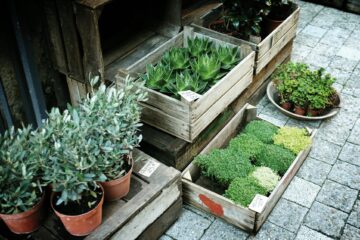The Slow Garden Movement is a transformative approach to gardening that emphasizes patience, sustainability, and a deep connection to nature. In a world where instant gratification is the norm, this movement encourages us to slow down and appreciate the natural processes involved in cultivating a garden. By adopting a slower pace, gardeners can foster a more sustainable environment, create beautiful landscapes, and enjoy a fulfilling relationship with their outdoor spaces.
What is the Slow Garden Movement?
The Slow Garden Movement is inspired by the broader slow movement, which originated in the late 1980s as a response to fast food and fast-paced living. At its core, the movement advocates for taking time to engage with what we cultivate, focusing on organic methods, regional biodiversity, and ecological sustainability. This philosophy not only enhances personal wellness but also promotes the health of the planet.
Key Principles of the Slow Garden Movement
There are several key principles that define the Slow Garden Movement:
- Emphasising Patience: Gardening is a process that requires time and nurturing. The slow approach encourages gardeners to be patient and to appreciate the small, gradual changes in their gardens.
- Sustainability: This movement promotes environmentally friendly gardening practices, such as using organic methods, conserving water, and encouraging biodiversity.
- Mindfulness: Engaging in gardening with presence and awareness can be a meditative experience. The slow garden encourages gardeners to connect deeply with nature.
- Localism: Supporting local ecosystems and using native plants are crucial aspects of the movement. This helps to preserve local flora and fauna and reduces resource consumption.
- Community Focus: The slow garden movement often emphasizes community gardening and sharing resources with neighbors, promoting a sense of community and collaboration.
Benefits of this Movement
Participating in the Slow Garden Movement offers numerous benefits, both for individuals and the environment. Here are some key advantages:
- Mental Wellbeing: Gardening can be therapeutic, providing mental health benefits through stress reduction and increased mindfulness.
- Strong Ecosystems: Sustainable practices help to protect and enrich local ecosystems, promoting biodiversity and resilience against climate change.
- Quality of Produce: Growing food organically often results in healthier, tastier produce, contributing to better nutrition.
- Sense of Accomplishment: Watching a garden flourish through patience is rewarding and instills a sense of achievement.
- Connection to Community: Engaging with neighbors and participating in community gardens fosters social connections and supports local economies.
Getting Started
If you are interested in embracing the Slow Garden Movement, here are some practical steps to get started:
- Choose Native Plants: Select plants that are native to your region, as they are generally easier to grow, require less water, and support local wildlife.
- Practice Organic Gardening: Avoid chemical fertilizers and pesticides. Instead, use compost, organic fertilizers, and natural pest control methods.
- Engage in Mindful Gardening: Take your time when tending to your garden. Observe the small changes and enjoy the process.
- Participate in Community Gardening: Join or create a community garden to share resources and experiences with others.
- Educate Yourself: Learn more about sustainable gardening practices through books, workshops, and local gardening groups.
Conclusion
The Slow Garden Movement invites us to reimagine our relationship with the earth and our gardens. By embracing patience and sustainable practices, we can create beautiful green spaces that benefit both ourselves and the environment. As we slow down and appreciate the natural world, we not only foster healthier ecosystems but also cultivate joy and fulfilment in our lives. Join the movement today, and let your garden grow at its own pace.
Keep on top of your gardening with our free online journal
Our free online tool allows you to organise your ideas and garden plans and help you be as efficient as possible in the garden.
Sign up now

